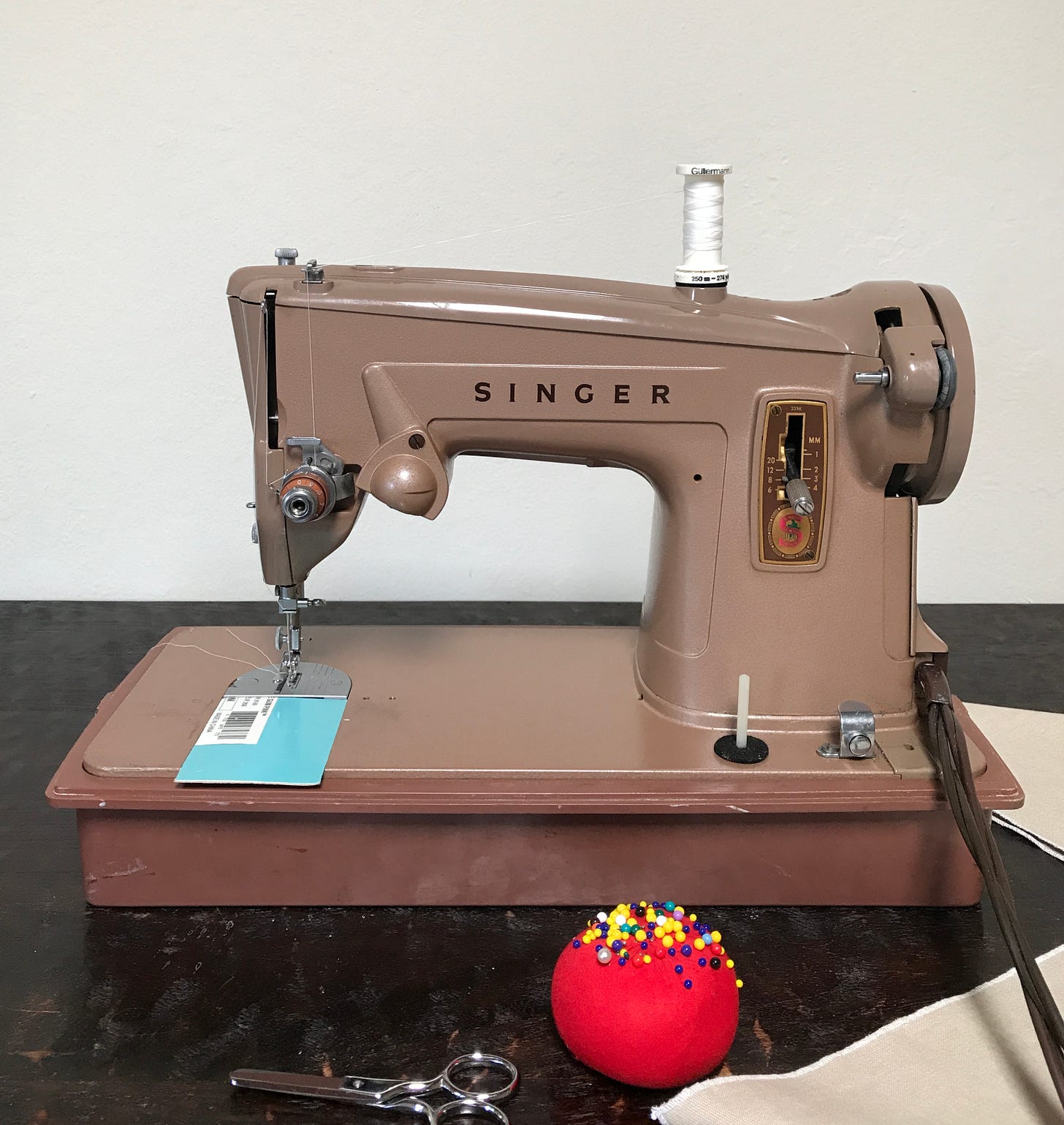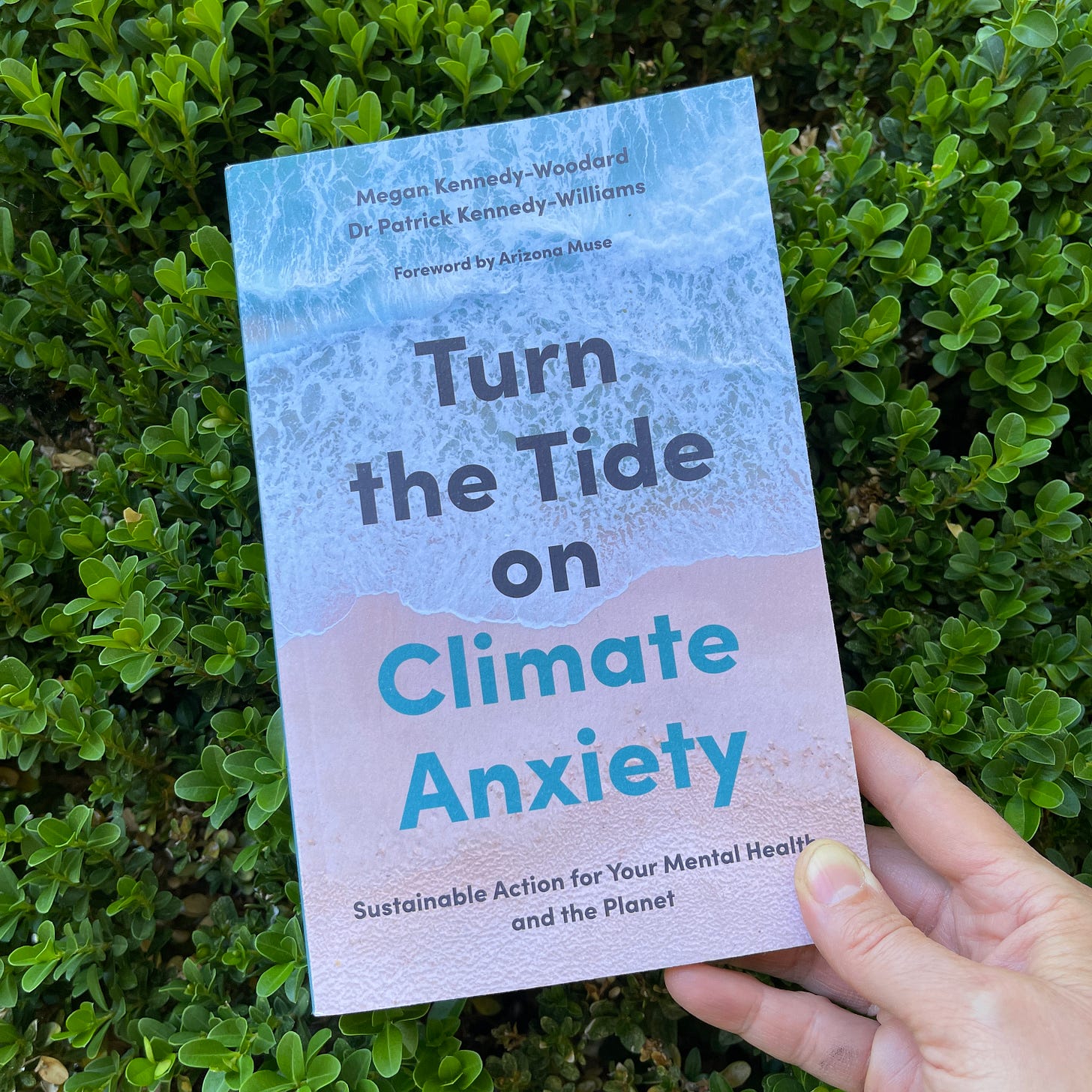12 Tips for Inexpensive Self-Care that Creates Virtually No Trash
Break free from the Wellness Industrial Complex
Definitions vary but essentially wellness refers to undertaking healthy activities that reduce stress and improve our mental and physical health. To “research” this topic, I looked up the hashtag #selfcare on Instagram. That search turned up 67 million results. Well, you know what we call 67 million people with a common interest—a target market. And that market is worth 450 billion dollars.
Marketers have appropriated the term self-care in order to slap it onto just about every product that they can target at women: silk pillowcases, unbleached organic cotton socks, hairdryers, face masks, beauty products, lotions of all kinds, Botox. These products have all been rebranded under the umbrella term “self-care” rather than the more apt “care washing.”
I’m not saying we should never buy anything or never treat ourselves. But mindless consumption won’t reduce stress or improve well-being. If anything, the ensuing clutter, credit card bills and possible buyer’s remorse will increase stress.
1. Create a to-not-do list
Things on my current to-not-do list include:
Turning on my laptop or phone as soon as I wake up
Checking news, social media and email in an infinite loop all day long
Worrying about things that haven’t happened yet
Beating myself up when I’m not “productive”
Beating myself up when I do anything on this list
And speaking of lists, whether they are not-to-do lists like this one or to-do lists, they really help alleviate stress. I feel much less scattered with both lists in hand.
2. Call in social supports
Some of your family members and friends may also need to undergo some self-care. You can practice empathy by asking them how they feel, listening and trying to understand. The world needs more empathy. To prove this, I would link to some of today’s headlines if my to-not-do list above did not prevent me from checking the news too often.
3. Learn to say no
If you keep getting sucked into social events or other commitments you dread or simply don’t have time for, learn to say no. I know this can be difficult. But saying no will cause less stress than participating in events you dread. With the holidays approaching, you may have a chance to practice this new skill several times. (Go here for ideas to stop receiving and giving gifts.)
4. Go on a digital fast
By putting your phone away and shutting down your computer, you will not only avoid a constant diet of bad news but also likely find more relaxing things to do, like the items on this list.
To avoid checking my phone for the time, I wear a self-winding watch. When I cook, I use the oven timer rather than the timer on my phone. I use apps to reduce phone time. If I check my email or Instagram or anything else when I’m running the app Forest, I will kill the tree growing on my screen. The tree’s sad, withered appearance makes me feel terrible so I avoid picking up my phone.
When I need to get work done on my laptop, I can block distracting websites for up to 24 hours using Self Control (compatible only for Macs, not PCs or phones). Once I’ve hit the start button, I cannot do a thing to override the app. I often set it before bed so I can’t look at distracting sites first thing in the morning (because sometimes I try to break my to-not-do list’s anti-goals).
5. Practice meditation and yoga
In order to reap the rewards of meditation, you need to practice it daily, not merely at the moment when stress overwhelms you (although deep focused breathing can help with that). I learned to meditate using the hong-sau method. There are others.
Yoga provides similar anxiety-reducing benefits. If you’re new to the practice, check out Yoga with Adriene. Several years ago, I repeatedly attended a difficult hot yoga class in San Francisco that almost killed me. Frustrated, I searched online for something less, I don’t know, competitive, and found Adriene. She’s great.
6. Knit, sew or make something
The repetitive, meditative motion of knitting has helped calm my nerves through anxiety-inducing events such as my daughter MK’s surgeries when she was 7 and 8 (she has a non-life-threatening but kind of serious facial difference). During a 9-hour surgery, I didn’t get up from my seat in the waiting room, where I knit non-stop. I made MK’s stuffed bear, Bearette, some beautiful turtlenecks.
Yes, hobbies can create waste and cost quite a bit of money but you can choose your materials carefully—natural fibers and upcyled fabrics for example—and not waste those materials. My produce bag sewing group has given away over 3,000 reusable produce bags at the farmers’ market but we have not spent a dime on fabric. People have donated so much unwanted fabric and sheets and I’ve had to turn down offers for more.
7. Cook your favorite dish
If you aren’t crafty but would like to make something, you could cook a dish, such as your favorite comfort food or something new if you enjoy experimenting. Cooking keeps me in the moment—but only if I want to avoid burning everything.
You may want to try fermentation if you haven’t. Not only do fermented foods taste delicious, they may also reduce anxiety. You’ll find recipes for fermented foods in my recipe index.
8. Limit the caffeine and alcohol intake
While reading Michael Pollan’s latest book, This Is Your Mind on Plants, I considered giving up caffeine like Pollan did while writing about caffeine. (He struggled to write about caffeine without consuming any.) I can give up all kinds of things but not black tea. It’s hopeless. I don’t drink it past about 2pm though and try to avoid twitch-producing consumption levels. If you enjoy the ritual of drinking tea but it makes you jumpy, perhaps stick with herbal.
People drank a lot of alcohol at the start of the pandemic. Alcohol sales increased by 54 percent and online sales increased by 262 percent compared to the same time period in 2019. Mind you, bars and restaurants were closed so people drank their booze at home instead of out. Still, those are big increases. And earlier this week, the New York Times reported:
An estimated one in eight deaths of Americans ages 20 to 64 in the years 2015-19 was the result of injuries or illness caused by excessive alcohol use, according to a new study from the Centers for Disease Control and Prevention.
You don’t need to be a therapist to understand that self-medicating creates problems.
9. Keep a gratitude journal
When my daughters were little, every day (well, most days), I would list five things for which I felt grateful. A notebook or even a notepad made out of paper destined for a recycling bin will work to jot these down.
Perhaps I occasionally wrote something profound but usually, my lists read something like:
Charlotte slept for five hours straight last night
MK didn’t run around the table during dinner
I went to the bathroom alone—twice
I wore clean sweatpants today
No one is sick
10. Take a nap
If you don’t get enough sleep or haven’t been sleeping well and you are able to take a nap, then take the nap. Napping does not make you a lazy slacker. Naps can help relieve stress. However, they can make depression worse. If you are depressed, please find and speak with a healthcare professional.
11. Spend time in nature
Getting out in nature—even a backyard—can reduce anxiety, improve memory, boost immunity and improve physical health. If you don’t have a yard, growing plants indoors also provides benefits as indoor plants can reduce stress and alleviate anxiety.
I find that by nurturing living things—even so much as vegetable scraps regrowing on the windowsill—I focus less on my stress. This might help explain my obsession with preparing fermented foods—they are alive after all!
12. Read a book
A study from the University of Sussex showed that reading a book or newspaper for a mere six minutes can slash stress levels by 68 percent, more than listening to music (61 percent), drinking a cup of tea or coffee (54 percent) or taking a walk (42 percent). Reading forces the mind to concentrate, which relaxes the muscles. And like meditation, reading prevents your mind from wandering.
If you have been experiencing climate anxiety, I have a book recommendation. Turn the Tide on Climate Anxiety, written by Climate Psychologists Megan Kennedy-Woodard and Dr Patrick Kennedy-Williams, explains that anxiety is a rational response to the climate crisis and tells us that we must take care of ourselves in order to build the capacity for taking care of the planet. The authors provide tools and exercises throughout the book to help us turn climate anxiety into climate action.
I found nuggets in the book like the following very helpful:
When we think in terms of ‘nobody is doing enough,’ we forget about all the millions of people who care and are taking action. There are positive initiatives taking place, and we can choose to be a part of the remedy, rather than being consumed by the problem.
Accolades for my cookbook, The Zero-Waste Chef: Plant-Forward Recipes and Tips for a Sustainable Kitchen and Planet:
You can check out the book here. Thank you to everyone who has bought a copy!
Upcoming workshops
Saturday, November 12th: Free Sourdough Starter Workshop, 9am PT/12pm ET. Register and find more info here.
Thursday, December 1st: Don’t Ditch Your Discard! Make Sourdough Pizza and Tortillas, 4pm PT/7pm ET. Register and find more info here.







I'm reading "Not Too Late: Changing the Climate Story from Despair to Possibility," but this looks great too!
Love this round up of ideas, so accessible! 👏🏼 I noticed that when I cut back on device use and social media, it made more room for reading books and doing other things on this list like meditating and going outside. It’s totally helped me find peace and clarity again!
Looking forward to reading your book Rec on tackling climate anxiety, too. 😌